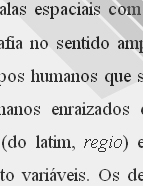

................................
Monographs in the traditional 19th-century style continued to be common. A notable example is Anais do município da Horta (1943), by Marcelino Lima (1868?-1961). A civil servant, self-taught with a secondary school education and part of a group of intellectuals who enriched the cultural landscape of the island of Faial in the late 19th century, he became interested in local and genealogical history. In the annals, he gives a complete history of the municipality of Horta, in the context of the island of Faial. Naturally, he begins with the discovery of the island and its settlement. He then refers to “governance” in the modern period, mentioning the grantees, captains-major, judges and magistrates. He then recounts the establishment of the municipality and all the relevant aspects of municipal life, from finances, administration, regulations and ordinances to buildings and the many facets of municipal organisation. The city of Horta also deserves an extensive chapter, as do military and political issues, highlighting the most important local figures. It does not forget economic and social life in a truly comprehensive view that touches on a multitude of subjects. It ends with an account of the “tragic hours”, which includes military incursions, natural disasters and a popular uprising in 1862. In this extensive work, he uses chronicles, studies, press reports and printed sources, in particular the Azores Archive, but also unpublished sources from the Horta Town Council Archives. Significantly, another field in which he distinguishes himself is genealogy, with his work on Famílias faialenses: subsídios para a história da ilha do Faial [Faial families: contributions to the history of the island of Faial] (1922). Another paradigmatic case of a local scholar is Urbano de Mendonça Dias (1878-1951) from São Miguel. He graduated in law in Coimbra and held various public offices on his island. Monarchist and regionalist in outlook, his love for his homeland and literary activity led him to history, fiction and theatre. In the field that concerns us here, his vast work has a historical and ethnological bent, clearly evident in A Vida de nossos avós [The Life of Our Grandparents] (1944-49, 9 vols.), but he did not neglect to consult archives and primary sources in order to construct his narratives. The diversity of subjects he focused on in his works and the valuable information he managed to gather make him truly important to the history of the Azores and the island of São Miguel. Marcelino Lima and Mendonça Dias are, after all, representative of a type of local historian who follows in the traditional historiographical line inherited from the 19th century: the themes selected, the way the material collected is treated, the interest in genealogies and figures, the ethnographic bent of some texts, the concern with the use of documents and the narrative style all show this affiliation with liberal and romantic history, tempered by a more scholarly concern for consulting archives.
This work is financed by national funds through FCT - Foundation for Science and Technology, I.P, in the scope of the projects UIDB/04311/2020 and UIDP/04311/2020.
